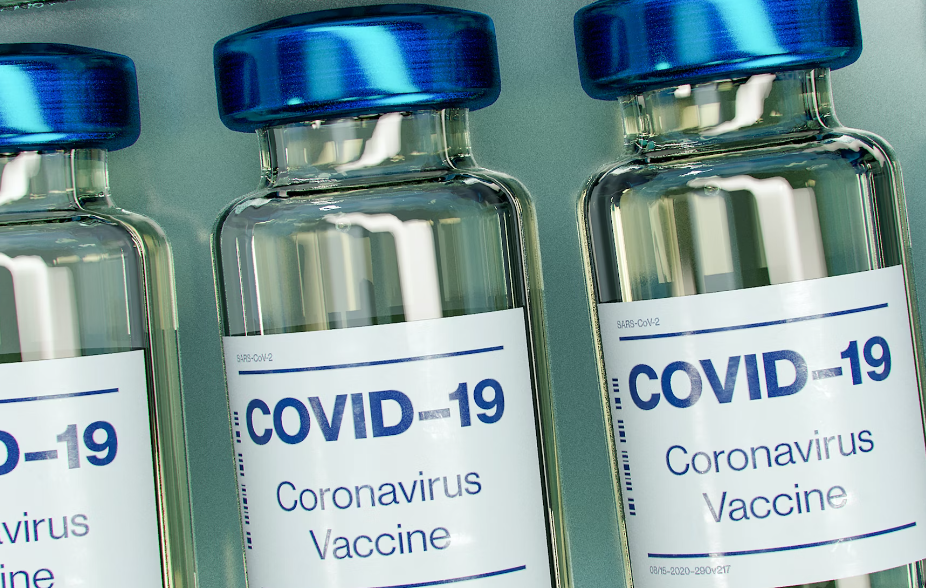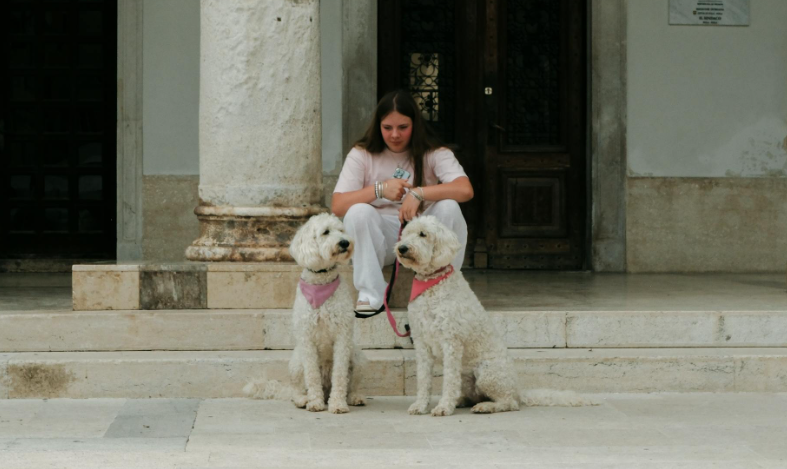Study Shows Whether Couples Agree With COVID Vaccination

© Daniel Schludi / Unsplash
Apparently, we are still not ready to let go of COVID just yet. There is still research ongoing trying to figure out what happened, and why some are experiencing a specific type of aftermath after the pandemic and the covid vaccination. Well, what if I told you that this research is actually claiming that the COVID-19 Vaccine, actually affected our romantic relationships as well? These researchers examined how COVID-19 vaccination status affected people’s choices in romantic relationships. Let’s have a look at what it had to say!
The Goal of the Study
The study revealed that individuals’ decisions regarding vaccination had a notable impact on their preferences in dating. Many participants considered vaccination status to be an important factor when choosing a potential partner. Additionally, the study found that factors like race, gender, sexual identity, and political affiliation also played a role in influencing individuals’ openness to a partner’s vaccination status. The researchers were interested in whether individuals regarded their partner’s vaccination status as a significant factor when seeking a romantic partner, particularly during the ongoing pandemic. Given the widespread availability and discussion of the COVID-19 vaccine, the researchers sought to understand how this new factor might influence people’s perceptions of potential partners.
What Data Was Analyzed?
The study analyzed data from the Singles in America (SIA) survey, conducted by Match, in August 2021. This annual survey collects information about the dating lives and preferences of single adults in the United States. The researchers ensured a representative sample of single American adults by recruiting participants from diverse backgrounds through Internet research panels.
The study included 5,000 single American adult participants, ranging in age from 18 to 100 years, with an average age of 45.68 years. The sample comprised 36.9% men and 61.9% women, with racial and ethnic diversity mirroring the U.S. population, with 67.2% identifying as White and the rest representing various racial and ethnic backgrounds.
Participants were asked about their own COVID-19 vaccination status and their preferences regarding their potential dating partners’ vaccination status. They also provided demographic information, including age, gender, sexual identity, race, and political affiliation.
What Did the Results Show?
Results showed that approximately 64.6% of participants were fully vaccinated against COVID-19, while 25.8% were unvaccinated, and 9.8% had started but not completed their vaccinations. Nearly half (49.9%) preferred their dating partners to be vaccinated, with an additional 18.9% willing to make exceptions. Conversely, 6.1% did not want their dating partners to be vaccinated, and 25% did not care about their partners’ vaccination status.
The study found a connection between participants’ vaccination status and their preferences for their potential partners. Those vaccinated were more inclined to prefer vaccinated partners, while the unvaccinated were more open to dating unvaccinated individuals.
Politics and Vaccination Correlation
Surprisingly, individuals who did not align with any political affiliation were more accepting of unvaccinated partners. This contrasts with prior research, which indicated that political conservatives tended to be more cautious about the COVID-19 vaccine. This difference might be attributed to these non-affiliated individuals feeling disconnected from political debates surrounding vaccines.
What About Minorities?
Individuals belonging to minority groups showed a greater willingness to consider unvaccinated partners, possibly influenced by factors such as societal stigmatization and a desire for connection within smaller dating pools.
Transgender individuals exhibited a higher likelihood than cisgender individuals of being open to their partner’s vaccination status with some exceptions or expressing a preference for an unvaccinated partner. Bisexual individuals were more inclined than gay and lesbian individuals to indicate that they were indifferent to their future partner’s vaccination status.
Among racial and ethnic groups, those identifying as Black/African-American were more likely than others to be open to a partner’s vaccination status with exceptions or to express a preference for an unvaccinated partner. People identifying as South Asian also showed a greater openness to an unvaccinated partner with exceptions.
The unexpected receptiveness of minoritized groups to unvaccinated dating partners aligns with broader issues of health-related mistreatment leading to increased medical mistrust among these groups, as explained by Campbell.
Limitations to the Study
This study aims to expand our understanding of how people view their partner’s COVID-19 vaccination status, particularly among the substantial population of single adults. However, it is essential to acknowledge certain limitations. For instance, some individuals may have opted not to get vaccinated due to a belief in pre-existing immunity from prior COVID-19 infection, and the study did not investigate the reasons behind vaccination choices.
As Campbell noted, while this data provides a representative snapshot, it only reflects the attitudes of U.S. Americans in August 2021. Therefore, these attitudes may differ significantly in different countries and at other points in time.
Future research should explore whether these attitudes towards potential romantic partners remain consistent over time and assess the extent to which these attitudes influence actual dating behaviors.
What Other Studies Have to Say
Another study took into consideration the reason why someone may not be vaccinated.
The most significant reason cited was concern about vaccine safety. Other highly rated reasons included a lack of knowledge about the vaccine, not perceiving it as necessary, and fears of becoming ill after receiving the vaccine. These reasons encompassed both modifiable factors, such as conspiracy beliefs or the belief that prior COVID-19 infection provides immunity, and potentially modifiable conditions like fear of injections.
Interestingly, vaccinated individuals and unvaccinated individuals within discordant couples had differing perceptions of their partners’ reasons for being unvaccinated. Vaccinated individuals tended to rate COVID-19 validity and medical contraindications more strongly as reasons for their partners’ unvaccinated status while rating religious beliefs less strongly compared to how unvaccinated individuals rated their reasons.
Additional Information Regarding Unvaccination Reasonings
Among participants who were unvaccinated while their partners were vaccinated, the second most significant reason for their lack of vaccination was a lack of knowledge about the vaccine. In contrast, vaccinated participants ranked the perceived lack of vaccine necessity as the second most important reason why their partners remained unvaccinated.

Additionally, some participants provided additional reasons for their unvaccinated status or their partners’ unvaccinated status through written responses. Unvaccinated individuals mentioned reasons such as having already contracted COVID-19, not fearing the virus, or believing in natural immunity. Vaccinated individuals cited reasons for their partners’ unvaccinated status, including labels like “anti-vaxxer,” describing their partners as stubborn, expressing concerns about government overreach, or believing that vaccination was a form of government surveillance.
The reasons behind these discrepancies are uncertain but could be attributed to factors like actor-observer bias, which tends to be more pronounced in intimate relationships and situations external to the individual. Another possibility is that vaccinated individuals may emphasize these reasons because they are concerned about their unvaccinated partners’ inaccurate beliefs about COVID and medical contraindications and may be motivated to help them overcome vaccine hesitancy.
Limitations of the Second Study
This study focused on understanding the dynamics of concordance and discordance in COVID-19 vaccine status within couples. However, there were notable limitations in the study that point toward valuable avenues for future research.
Firstly, the study did not collect data on certain demographic variables, like education and income levels, which are known to be associated with vaccination decisions.
Secondly, the sample used in the study was skewed toward a higher proportion of women and non-Hispanic Whites, reflecting the typical participation pattern in online surveys.
Thirdly, future research could explore the reasons why individuals choose to get vaccinated.
Lastly, the study did not investigate whether discordant couples were already discordant before becoming couples or if their vaccination statuses changed or remained the same after entering the relationship.
What about you? Would you mind if your partner was unvaccinated while you were and vice-versa? Or is that a dealbreaker in your relationship?


